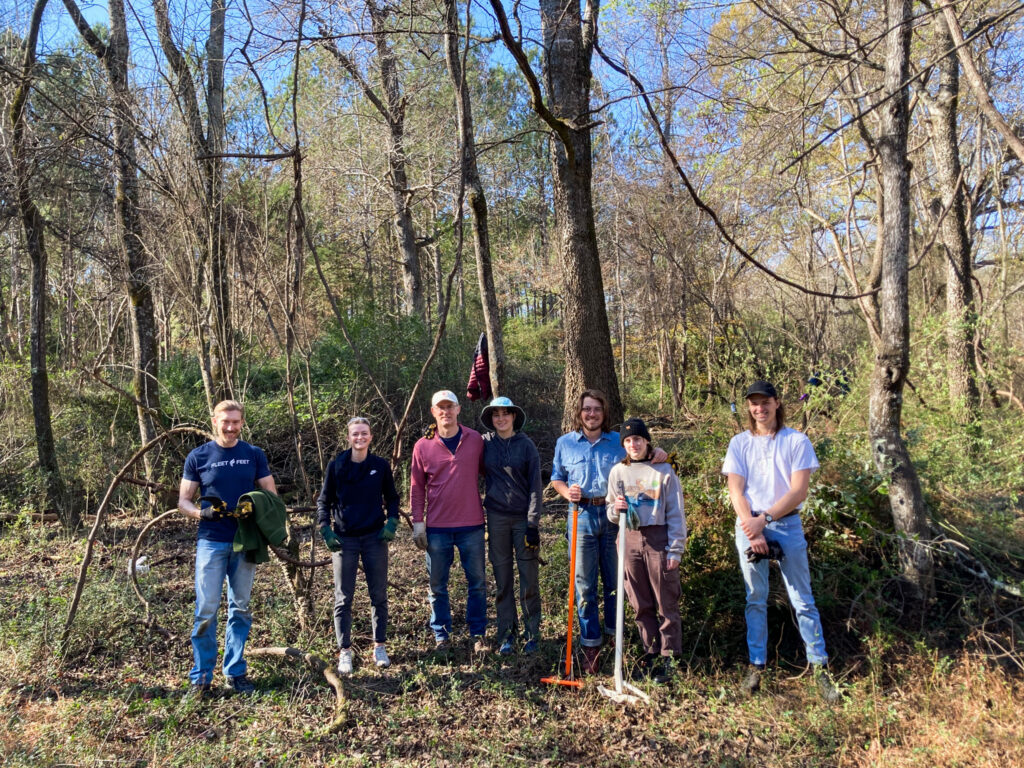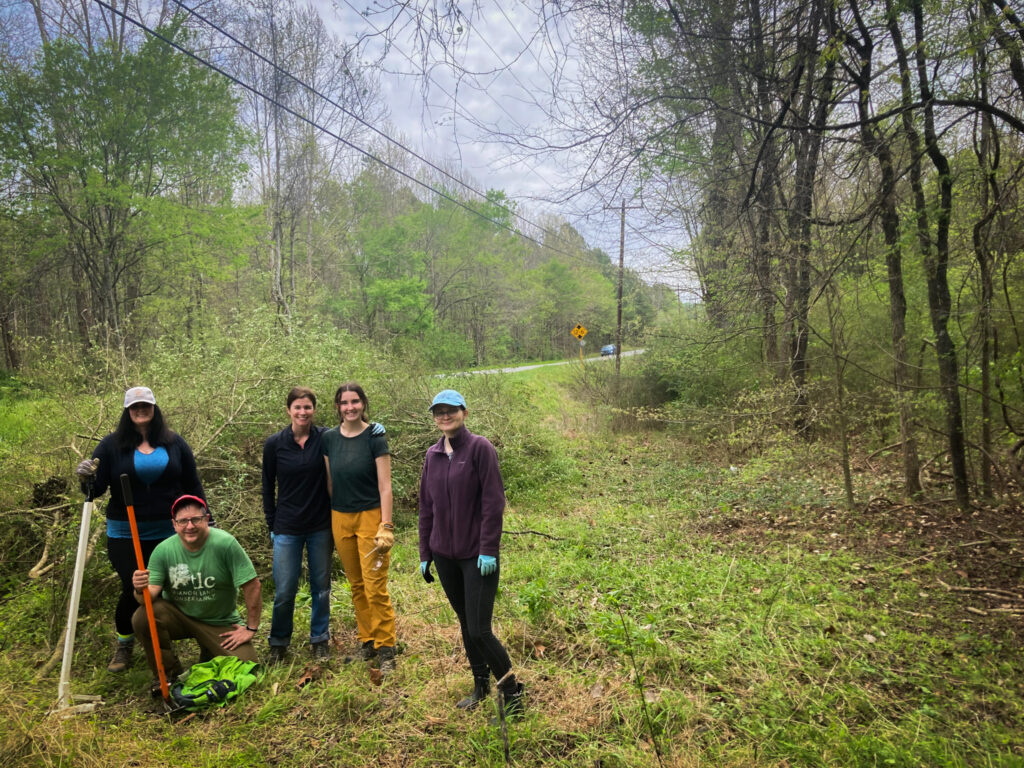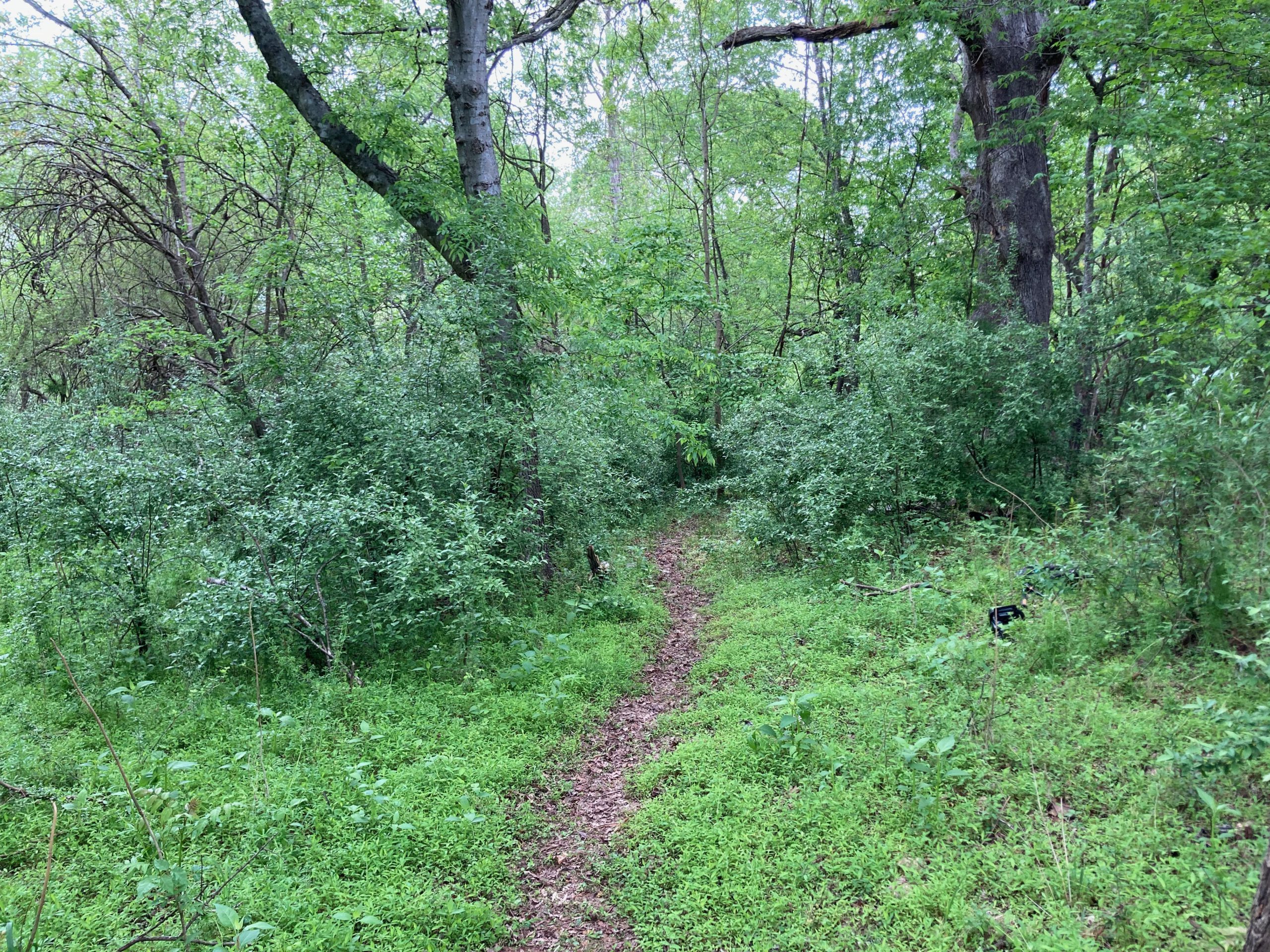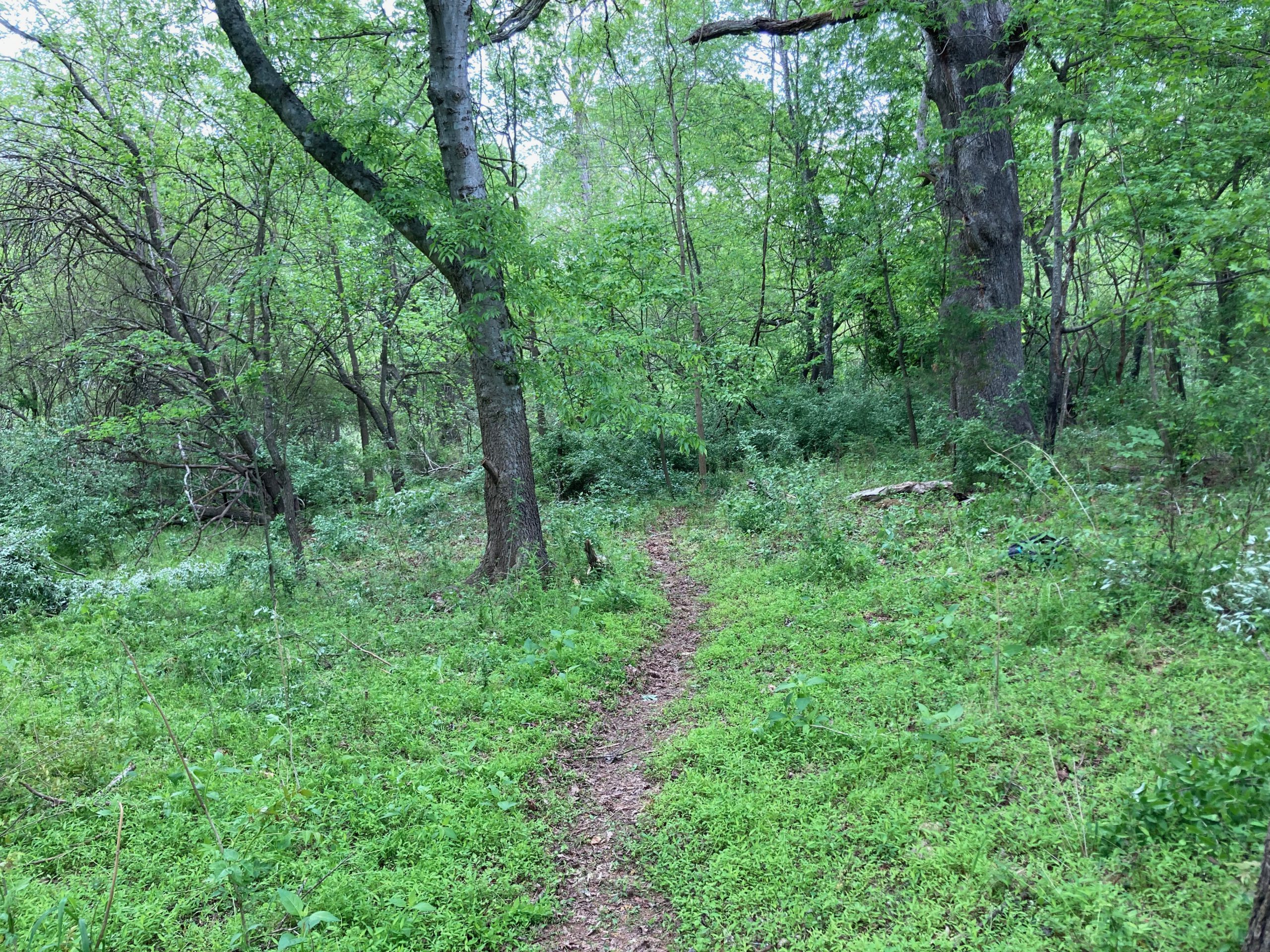Some accounts say mimosa trees were introduced to the United States by French Botanist Andre…

When facing environmental challenges like climate change and disappearing habitats, it's easy to feel overwhelmed and wonder if individual actions can make much of a difference. Triangle Land Conservancy's TriWild volunteer program provides an opportunity that demonstrates the opposite: each one of us can have a big impact on restoring native ecosystems. Since its beginnings in 2021, TriWild has brought a community together around caring for Brumley Nature Preserve and increasing connections to the natural world.
TriWild began as a passion project of TLC volunteer Steven Feuerstein. For the last decade, Feuerstein has ventured out to community parks and lands and dedicated much of his free time to removing invasive plants. After a visit to TLC’s Brumley Nature Preserve and noticing the abundance of invasive privet and olive, Feuerstein got in touch with TLC staff to see if there was a way he could help. Since then, he has collaborated with TLC to establish a monthly volunteer opportunity for the public to meet at Brumley to learn about and remove invasive plants.
On a stroll through your local forests, meadows, and even your backyard, you’re sure to find invasive species. Plants such as multiflora rose, tree of heaven, and privet are abundant throughout North Carolina and the Eastern United States, many of which were first brought over as early as the 1700s. In non-native ranges free from natural predators and competition, invasive species thrive. For example, there are no herbivores that eat multiflora rose (Rosa multiflora), and the plant’s early colonization habits have rapidly led to its spread across ecosystems. Tree of Heaven (Ailanthus altissima) similarly, has crowded out native species, and uses its unique root systems to allow it to establish itself up to 50 feet away from the main trunk when damaged. Chinese privet (Ligustrum sinese) can grow in practically any conditions, with or without sun, bottomlands, uplands, riparian zones, and in suburban areas, outcompeting native shrubs and blocking smaller plants from sunlight.
Whether brought over as erosion control, ornamental plants, to attract wildlife, or even by accident, the presence of these plants were initiated by people. The resulting effects can be detrimental to native habitats and the species that call them home. And while humans may have caused these issues, it’s also humans who can fix them. Removing invasive species can be a physically intense project, but it is one with great rewards. In addition to helping trees and native wildlife survive, volunteers are also connecting with the outdoors, getting great exercise, and working with like-minded community members through purposeful tasks.

On a Saturday morning you’ll find the TriWild volunteer group gearing up for a day of work at Brumley’s Schoolhouse of Wonder entrance. Volunteers of all backgrounds and skills are welcome, as are a variety of tasks and tools at each workday. For those more mechanically inclined, there are weed wrenches you can use to lever out saplings up to 2” in diameter. If heavy lifting is not your style, then you can get your hands dirty by focusing on hand pulling of privet, olive and stilt grass. Comfort level and safety is always the main priority, and regardless of how you pitch in, you’ll find yourself feeling accomplished at the end.
Feuerstein recognizes that it can be hard to avoid the feeling of dread when it comes to invasives. But even by rescuing one mature tree, you are saving something that is home to thousands of creatures, highways for wildlife, and a living thing that removes CO2 from the atmosphere.


The impacts of this volunteer group are helping to protect important habitats that are home to diverse wildlife and safeguard local watersheds. “Steven and the TriWild crew have made tremendous progress on a section of Brumley eradicating mature stands of privet, autumn and Russian olive, multiflora rose, and a handful of other invasive shrubs,” says Nick Adams, TLC’s Land Stewardship Manager (West). “The understory looks newly transformed in the areas they have worked, which is an essential and labor-intensive first step in our restoration effort. We are so lucky to have such a hardy and persistent crew leading this charge.”
2023 will see the expansion of the TriWild program, with an additional Saturday added to the monthly workday lineup. Beginning in February, the program will alternate between Out with the Olive on first Saturdays and Priority Privet on third Saturdays. You can help be a part of restoring Brumley by making an account on TLC’s VolunteerHub, and signing up for the next available TriWild shift.
Invasive species are difficult and complex to deal with. While invasive plants may always pose a problem to our landscapes, by working together and maintaining our local spaces, we can make a difference. “You can’t win the war, but you can win every battle,” emphasizes Feuerstein. “Every time, TriWild volunteers clear an area of invasives, they give native species a chance to get – and stay – ahead.”
